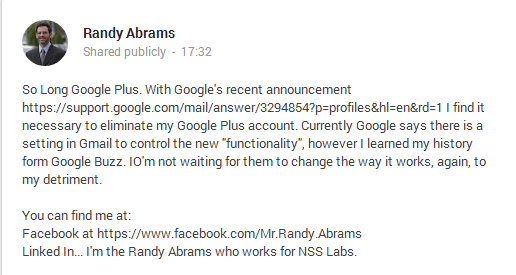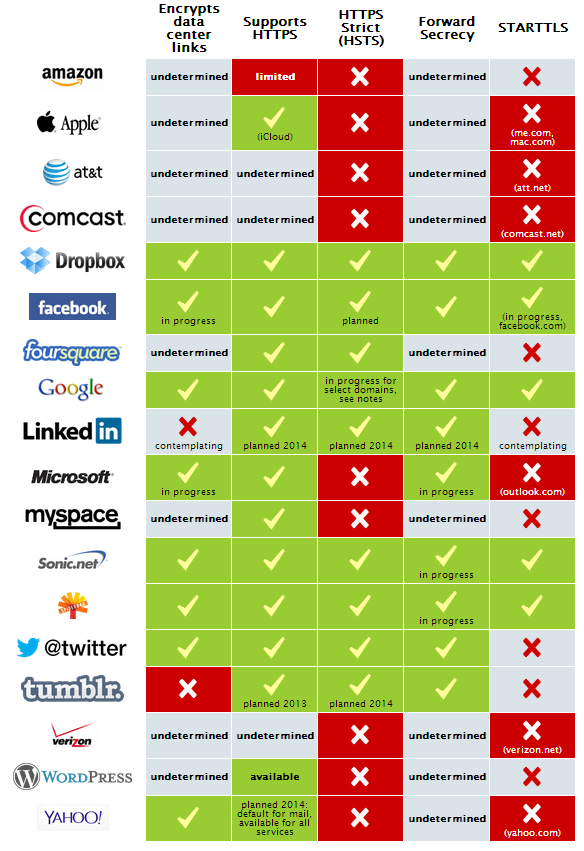Archive
Having sex online can seriously damage your economic health
Get Safe Online is warning young males about the webcam scam sex blackmail. It seems to be targeting youngsters in Avon and Somerset because when I asked about other cases I was told, “The City of London police haven’t been able to provide any further stats, as this is a relatively new type of fraud.”
Strange, because it certainly isn’t new and is unlikely to be limited to Avon and Somerset.
Avon and Somerset Constabulary has dealt with several cases where, following connecting via social networking sites, victims (usually young males) are lured into taking off their clothes in front of their webcam – and sometimes performing sexual acts – which is videoed by the fraudster. The victims are then threatened with blackmail to avoid the video being published online and shared with their contacts. Investigations have revealed that most of these cases stem from abroad, making them difficult to trace.
That’s the scam in a nutshell. But it’s certainly not new – and you can get a more complete description from a report in the BBC from September 2012.
She said she was French, living in Lyon, but was on holiday in Ivory Coast. We then chatted for a bit on MSN and I could see a video of her. She was a very beautiful French-looking girl, very pretty.
She was dressed to begin with and asked whether I would be interested in going further. I asked what that meant and she said she wanted to see my body… everything.
Blackmail fraudsters target webcam daters
This particular case seems to have been in France, but adds another potentially more worrying aspect. The subsequent video was published with a caption saying the victim performed a sex act in front of a young girl – and that unless he pays €500 to take it down, the world would soon know he is a paedophile.
“At the moment we are persuaded that there are several blackmail attempts committed every day,” says Vincent Lemoine, a specialist in cybercrime in the Gendarmerie’s criminal investigations unit.
So it’s not new and already widespread. Perhaps it’s just newly migrated to the UK because, let’s face it, we Brits have a reputation for not even shaking hands without a formal introduction. But it is a problem and it’s very likely to be an increasing problem. I just wish that Get Safe Online would get real with the young of today. Its language simply doesn’t resonate.
“It’s terrible that fraudsters are targeting innocent people in such a personal way,” said Tony Neate, Chief Executive of Get Safe Online. The language is so British and understated. Terrible? Devastating and possibly life threatening (“His blackmailers were relentless and he could see no end to his ordeal. A week after the first demand, he killed himself.” BBC report) might be more accurate.
I also have some concerns over whether Get Safe Online actually understands young culture. The purpose of the warning is admirable – but the advice given somewhat misses the mark. “Be wary about who you invite or accept invitations from on social networking sites. Don’t accept friendship requests from complete strangers. You wouldn’t do this in real life!”
That’s the problem. That’s exactly what people actually do in real life. We dress up, go out on the town, hook up with a complete stranger and have sex. It’s called a one-night-stand and it’s what weekends were invented for. And all friends were strangers before they became friends, so saying don’t make friends with strangers is a bit silly.
So I would say to Get Safe Online, if you want to seriously warn the youngsters of today, Get Safe should first get real.
If you want more advice on the threat from Get Safe, there’s an outline on their site:
I think the illustration is meant to show a worried young man who is being blackmailed – but it could just be someone giving head to a stranger he just met on Facebook.
Don’t let the government or the tech giants fool you into thinking anything is changing
When Bruce Schneier left the employ of BT, he finally got off the pot. His natural inclinations can now be seen. He still hasn’t criticised BT despite it being obvious that BT is no more innocent than any of the big American telecoms companies — but he told me (by email) at the time that he tried to avoid getting involved in foreign politics.

Bruce Schneier — the ex-BT, anti-surveillance privacy guru
He hasn’t been 100% consistent in this. When Swedish journalists discovered Swedish involvement in the MITM NSA/GCHQ hacking program known as Quantum, he said, “Both Quantum and FoxAcid are NSA/GCHQ programs to attack computer users. The fact that Sweden is involved in these programs means that Sweden is involved in active attacks against internet users. It is not just passive monitoring. This is an active attack.”
One day we may yet hear what he knows about BT’s cooperation with GCHQ (Tempora et al).
In the meantime, he is now no longer backward in commenting on surveillance in general and the NSA in particular. An article in The Atlantic last week warns us not to listen uncritically to the protestations of either the NSA or the tech giants that now appear to be up in arms against this NSA hacking and surveillance.
The tech giants (Google, Facebook, Yahoo, Microsoft etcetera) all claim to be doing what they can to prevent further snooping. But they are not doing the one thing that would work — they are not encrypting user data on servers in a way that would be impossible for governments to demand the keys. And the reason they are not doing this is simply because the vendors and the governments both want the same thing — to be able to read our data.
The best we have are caveat-laden pseudo-assurances. At SXSW earlier this month, CEO Eric Schmidt tried to reassure the audience by saying that he was “pretty sure that information within Google is now safe from any government’s prying eyes.” A more accurate statement might be, “Your data is safe from governments, except for the ways we don’t know about and the ways we cannot tell you about. And, of course, we still have complete access to it all, and can sell it at will to whomever we want.”
Don’t Listen to Google and Facebook: The Public-Private Surveillance Partnership Is Still Going Strong
The reality is that for so long as the vendors want access to our data, the governments will be able to demand it. Neither of that is changing; although both sides are trying to pretend it is.
The UK government is simply lying about data protection reform
This coming week the European Justice and Home Affairs Council (ie, national ministers from the individual national governments) will meet in Brussels. There are several items on the agenda.
Top of the list in a memo released by Viviane Redding is reform of the data protection laws. She says,
I am confident we will be able to build on the momentum injected into the negotiations by the Greek Presidency at the last informal Council meeting in January. Seeing the latest progress, I will continue working with Ministers for an adoption of the data protection reform before the end of this year.
Bottom of the list in a ministerial statement from Theresa May is reform of the data protection laws. She says,
There will be a state of play/orientation debate on the Proposal for a General data Protection Regulation. The UK continues to believe that this proposal is far from ready for a general agreement, and that no such agreement can occur until the text as a whole has been approved. The proposal remains burdensome on both public and private sector organisations and the Government would not want to see inflexible rules on transfers outside the European Economic Area which do not reflect the realities of the modern, interconnected world.
And yes, they really are talking about the same thing. Most of Europe has already agreed the data protection reform proposals; but the UK doesn’t like it and won’t play.
The problem is, providing more protection for our personal information is difficult for the UK. It would upset the three most powerful organizations in the country: GCHQ, Google and Facebook. GCHQ would have its ability to collect our private messages, photos, home videos and internet browsing habits severely curtailed — and of course nobody would want to see that.
Google and Facebook would no longer be able to ship our personal information to servers outside of the UK; that is, the US, from where the NSA/FBI could demand access while declining to allow us to be told (assuming they need to since GCHQ will probably have already intercepted the data via its taps on the fibre cables that run between the two continents and simply handed it en masse to the NSA for storage and safe keeping).
Since these negative arguments would not prove popular to the British public, they are being hidden in spurious and frankly false claims that data protection will cost business. Yes there will be some cost in protecting our data (not nearly as much as the government would like us to believe); but that will be more than compensated by the lower cost of doing business with dozens of different data protection regimes. The net effect of reforming data protection will be greater data protection at a lower overall cost.
But Theresa May doesn’t want us to understand that. She and David Cameron would like us to believe that they are protecting us when they are really just protecting vested interests and actually selling us down the river. They are willing to trade our privacy to keep GCHQ and big American business happy.
The American tech giants – Facebook in this instance – still don’t get it over the NSA spying programmes

Zuckerberg at the 37th G8 summit in 2011 (Wikipedia)
The following is a transcription of a brief interview given by Mark Zuckerberg. The original can be found on TechCrunch here.
I’ve tidied it up a bit – removed the ‘ums’ and ‘rights’ and ‘you knows’ – just to make it more legible. I struggled over that because they clearly demonstrate where Zuckerberg is comfortable and where he is not comfortable with what he says; but I went ahead because what he says rather than his level of comfort is important to me. Anyway, here’s what is left:
We take our role really seriously. I think its my job and our job to protect everyone who uses Facebook and all the information that they share with us. It’s our government’s job to protect all of us and also to protect our freedoms and protect the economy, and companies; and I think they did a bad job of balancing those things. So frankly I think that the government blew it. I think that they blew it on communicating what they [were doing]; basically the balance of what they were going for.
The morning after the start of [the scandal] breaking, people asked [the government] what they thought; and the government’s comment was, “Oh don’t worry, basically we’re not spying on any Americans.”
Right. Wonderful. That’s really helpful to companies who are trying to serve people around the world, and [it’s] really gonna inspire confidence in American internet companies. Thanks for going out there and being really clear about what you’re doing. I think that was really bad.
We’ve being pushing just to get more transparency on this, and I actually think we’ve made a big difference. The big question that you get from all the coverage is, what’s the volume of the total number of requests going on? Is it closer to a thousand requests that the government is making of us, or is it closer to 100 million? I mean, from the coverage and from what the government has said you would not know the difference. But we worked really hard with the government, behind the scenes, to get to the point where we could release the aggregate number of requests. It was around 9000 in the last half year.
Does that number tell us everything we want? No. And that’s why when the conversations get to the point where we weren’t going to make further progress, we decided to sue them so that we could reveal, is it 1000 or 2000 or 3000 or 4000 or 8000 of the 9000 requests. But the reality is, because of the transparency that we pushed for, now people can know and deserve to know that the number of requests that the government is making is closer to 1000 (it’s 9000 or less in the last six months), and definitely not, you know, 10 million or 100 million…
Really, Mark? Do you think that knowing the NSA made just over 1000 requests for your customers’ details rather than 9000 makes it all right – and that they can carry on, without judicial oversight, as they are? It’s the fact, not the volume, of NSA spying that is wrong, just plain wrong. Until the American tech giants stop hiding behind their really quite meaningless ‘transparency’ demands and empty successes over the NSA, then anger – and especially non-American anger – will remain at a high level.
Oh; and did I mention the word ‘hypocrite’? Facebook suggesting that the NSA isn’t taking sufficient care over users’ privacy? Really?
Randy Abrams bids farewell to Google+
Yesterday Google announced a new feature in Gmail: it integrates with Google+. Gmail will now supply the address of anyone you follow even if you don’t have, and that person has never provided, the relevant email address.
There are obvious privacy issues here. But it’s not as simple as that and there are easy opt-outs. Nevertheless, you can see how some people might be concerned. Randy Abrams is one such person. In fact, he’s so concerned, he’s dumping G+.


Is it just me? “I’m leaving G+ because of the way they treat their users. You can find me over at Facebook…” Does nobody else find that just a wee bit, well, strange…?
Who’s doing what to protect our data?
The Electronic Frontier Foundation has a fascinating graphic on which companies are doing what things to protect their customers’ – our – data in the post Prism/Snowden era.


What really leaps out is that the companies is that provide consumer cloud services are on our side (Dropbox, Facebook, Google and Twitter); telecommunication companies are on their side (AT&T, Comcast, Verizon); and the main OS providers (Microsoft and Apple) aren’t really sure which side their bread is buttered.
Suddenly, I feel very old and out of touch
Whether I like it or not, and I like it not, the times they are a-changin



and like the elves, perhaps it is time that I and my generation departed this Middle-earth…

Did my plan to beat the recession work?
On 15 December I shamelessly asked people to retweet a post: Re-Tweet this post – it’s part of my plan to beat the recession. The underlying purpose was to see if I could manipulate my social Klout score and qualify for a business loan. I couldn’t.
The post got 15 tweets, 3 LinkedIn shares, 2 G+ shares and 5 Facebook likes – and I thank everyone who responded.


Sharing the post…

During this period my Klout score rose to its highest ever: 49 – possibly enough to get me an interview for a job as a janitor in a business under administration; but not enough to fool the money men.


Highest score ever!

Since that time the score has resumed its downward trend, suggesting my natural social score is around 45 (much better than when I opened my Klout account with a score of 30 – at which time Thomas Power of the ecademy social/business network accurately described me as a ‘social muppet’). (Incidentally, ecademy was bought by Lyndon Wood last July and is now, even as I write this, morphing into SunZu – The Art of Business.)
69% of my Klout score comes from my engagement with Twitter. Less than 2% comes from Google+, and the rest from LinkedIn. Nothing comes from Facebook because I do nothing with Facebook.


Source of my social standing

So what can I conclude from this experiment? Well, the simple fact is that my score increased by about two points. The implication, then, is that if I were a more naturally social animal, cultivated Facebook and other networks and told everyone what I had for breakfast despite being hung over from last night’s debauchery (which I would have interrupted every two minutes to explain what base I had reached), then I could rapidly become a better business bet. But I would have to maintain this engagement over an extended, possibly continuous, period. Or, as Mary Branscombe said when she kindly commented on the original request:



What a strange world, this world of ours.
Re-Tweet this post – it’s part of my plan to beat the recession
In order to beat the recession I need to expand. In order to expand I need a business loan. In order to get a business loan I need to improve my Klout.
No, really.
I went to the bank. No.
I went home, juggled some figures on the business plan to improve the bottom line projected profits and went back. No.
Apparently it has nothing to do with business potential, it has only to do with collateral. That is, I can have it if I can prove I don’t need it.
There must be another way. So I checked American Banker and found this in Thursday’s issue:
CAN is joining a growing list of companies chasing small business loans by using alternative data sourcing. These companies include Kabbage, which uses social media data as part of lending decisions… Lighter Capital also uses social networking data…
Big Data Comes to Small Business Online Lending
So I checked back into the earlier issues, and found this:
The company [Kabbage] is incorporating social media activity into its analysis now, Frohwein [founder and CEO] says. “We allow our customers to associate their Twitter and Facebook accounts. As our theory goes, the more active you are at keeping in touch, gaining followers, and responding to them, the more likely you’re running a solid, growing business and you’re worth an additional risk. Or there’s less risk associated with you so we can provide more cash or at a lower rate.”
The 10-Minute Small Business Loan
So that’s the plan; and that’s where you come in. Tweaking the bottom line of my business plan no longer works – but with your help I will be able to tweak the bottom line of my Klout score and get the low-interest business loan I so richly deserve. So please use the ‘share’ buttons below: tweet, like, repost, Reddit, whatever – or all – for this post. Do it for Christmas and the lulz, and I’ll still beat the system. You know I’m worth it.




